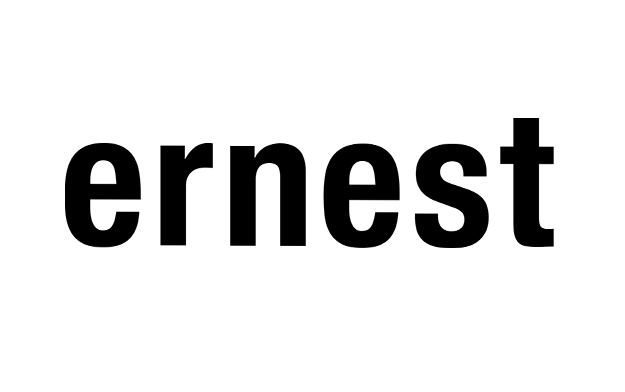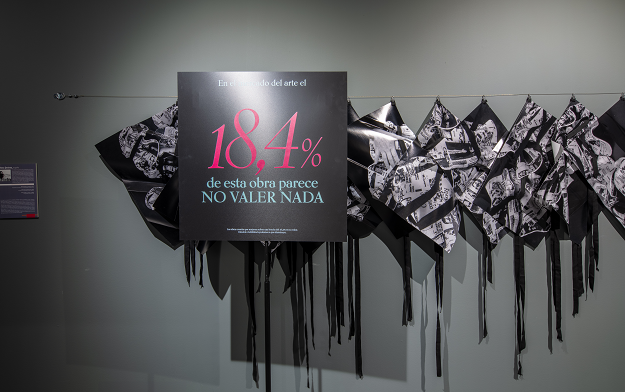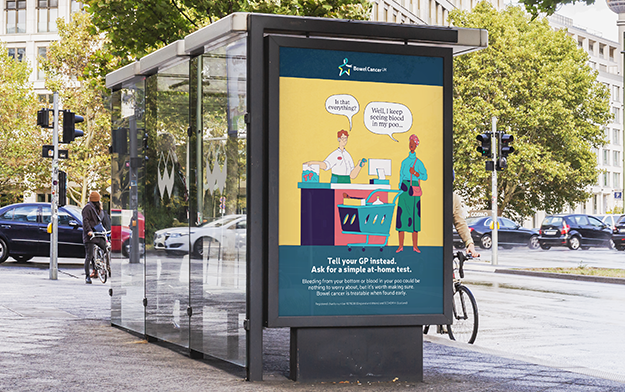
New Creative Agency Ernest is Up and Running
Oct. 24, 2022
Pablo Alzugaray, Nacho Guillo the chief creative officer and Abelardo Bethencourt CEO are founding a new creative agency under the brand Ernest. As revealed in the campaign launched a few weeks ago to recruit its staff, the founding spirit of Ernest demands a break with fear.
The value proposition of Ernest rests on four pillars:
- Audience-centric design
- Intelligence-based
- Creativity-driven
- Performance-based fees
Nacho Guillo, the chief creative officer said:
"If we had to sum up Ernest with a single message, it might be: break with the fear of breaking things… in order to rebuild them. Because breaking things disrupts things; and it’s analogous with starting over. And with being born. We’re all born breaking water, but only a few continue with the urge to break things."
Abelardo Bethencourt, CEO said:
"We’re starting over and thinking again. With everything we’ve learned, but also with the innate and unbroken curiosity of someone who’s taking their first steps on an unimaginable journey."
Pablo Alzugaray, the chief creative officer said:
"Beginnings are incredible places, where you return with great humility, and the value of which you only discover when you get there. Suddenly you have a blank sheet of paper in front of you with all the freedom that that entails."
Audience-centric design
The first ever audience-centric as opposed to discipline-centric agency. At Ernest, specialisms are not defined solely by what one person or another knows about SEM, CX, the metaverse, content or events, but what one person or another knows about the silver economy, generation alpha, the LGTBIQ+ community, animalists, runners, motoring reporters or environmental lawmakers, among other things.
Pablo Alzugaray said:
"We’re digging deeper into each audience to find out how they feel, think and act, and what messages they expect from brands and institutions. What could motivate them, what they yearn for and need, what touchpoints and formats they react to the most, amongst other things."
Ernest has five specialist divisions:
- Customer audience: Consumers, users, buyers, etc.
- Internal audience: Employees, shareholders, distributors, etc.
- Opinion audience: Journalists, advisors, consultants, opinion leaders, etc.
- Institutional audience: Public decision-makers, lawmakers, regulators, organisations, etc.
- Citizen audience: voters, members, activists, contributors, donors, etc.
Abelardo Bethencourt said:
"In each audience, we combine what we know about them with demographic/psychographic data and their behaviour, to create relevant audiences for our clients. For example, “Non-banking generation Z” or “sustainability lawmakers."
Within each division, agency develop the corresponding applied practices.
For example, for the "customer audience":
- Product design
- Branding
- Digital sales
- Loyalty building
For the institutional audience:
- Legislative follow-up
- Influencing strategies
- Alternative storytelling
Pablo Alzugaray added:
"This is unprecedented, because in spite of trotting out the “customer-centric” mantra, we were still organising ourselves by emulating factory assembly lines. Agencies, with areas of specialisation based on disciplines (advertising, digital, events, content, etc.) and consultants, with areas of specialisation by sectors (banking, telco, industry, public services, etc.), but why not have teams focused on specific groups of consumers? That sounds much more customer-centric."
Intelligence-based
At Ernest, established intelligence is understood as the methodology that functionally integrates the different actionable sources of knowledge about each audience.
On the one hand, there is data and, especially, the capability of artificial intelligence to convert them into predictions and for personalisation. What others have done before, with the same profile and/or in the same circumstances, is turned into a pattern that makes it possible to anticipate what someone will do. And this provides access, while respecting privacy, to very high levels of efficacy and efficiency which, furthermore, improve with each new interaction, given that it augments the database on which the pattern is modelled.
All of this is used in conjunction with qualitative/quantitative research, equipped with the most advanced digital tools, both for asking questions in the field, and for finding answers during the analysis.
And finally, there is real-time information provided by web and media monitoring to identify tensions and trends.
Abelardo Bethencourt said:
"It’s difficult to propose a strategy without first having a deep understanding of what’s going on. And it cuts across the entire agency, because it applies to any audience with any objective."
Creativity-driven
At the same time, Ernest believes that practically all companies can access comparable data, as well as the technologies that turn them into opportunities, meaning that, while key to being able to compete, it is not enough to stand out. And it is clear that the key lever once again is creativity.
Nacho Guillo said:
"Creativity is the essence of differentiation and differentiation is the essence of gaining an advantage. But I don't just mean the idea or formal execution of an advertisement – which obviously matters –, but also the ability to find new and better answers to the old questions. The creativity that creates or modifies a product, transforms a business model, changes the culture of a team or shifts public opinion on an issue."
Performance-based fees
Ernest also proposes that when a client accepts our involvement in the decisions which have an impact on the results of the business, their fees can be linked to these, making them a true partner of the client. Agency will work towards achieving the objectives of the brands and organisations which place their trust and strive for involvement to have a positive impact on their results. So, why not link the remuneration to the achieved effect?
Pablo Alzugaray added:
"The attempts that have been made to do something like this, which have been rare and mainly in the UK, failed because they didn’t make the mechanism contingent on the involvement of all of the parties throughout the process, and because they didn’t have the current technology to monitor and attribute the results."
Agency's operating model is based on three factors:
- Connected team
- Breaking with the binary structure
- Super-craft
Connected team
While one of the positive effects of the pandemic has been that employees have learned to work as a team without being physically present, at Ernest they believe that the most interesting benefit of working remotely, while respecting a certain balance, is the possibility of working permanently with people who live on the other side of the globe. They call their stable network of people who interact daily with the team in Madrid from different countries and cultures their connected team.
Pablo Alzugaray said:
"We’re not referring to specific jobs, or freelancers who engage with a certain project, nor is it an initiative to relocate production to lower costs. It’s about finding talent through difference: designers, programmers, data scientists, etc. who enrich the work with a fresh perspective, other points of reference and from a different reality."
Breaking with the binary structure
At Ernest, team convinced that in the present day, not even Bernbach himself would persist with the binary copywriter-art director structure which he created 80 years ago. Quite simply because it no longer meets the requirements of a task which is broader, more diverse and more unpredictable than the graphical pieces for which it was conceived.
Nacho Guillo said:
"And so, simply and humbly we are rethinking it and we believe that every creative can work alone, or with one, two, three, or six people depending on the project, and they can all be copywriters, designers, illustrators or choreographers, that they can work inside or outside the agency, inside or outside the industry, and inside or outside Spain."
Super-craft
The third factor is protecting the quality of execution. A healthy obsession and a commitment to the finished piece. Because today it makes as much of a difference as the idea itself. Paying attention to even the most insignificant copy, investigating new languages, and taking the utmost care with the music, each illustration, each edition and each digital experience.
Nacho Guillo assures:
"We want to continue to see this work for the profession it is. And to continue performing it with the same respect and consideration as on day one. Because the only way the profession can continue to advance is if we all improve every little detail, and by being capable of inspiring others and infecting them with the desire to do better jobs than other agencies and clients."
Abelardo Bethencourt said:
"To manage this model, we’re selecting someone with the role of Head of Talent, given that identifying and developing a network such as the one we’re designing in order to manage this model is a full-time role requiring a high level of specialisation."
The Name
Team has decided to call themselves Ernest, based on its original meaning, originating from the German Ernst or Ernust, which refers to being “brave”, “honest” “persevering”, “solid” or “implacable”, and which was so honoured by the Oscar Wilde work, “The Importance of Being Earnest”. Furthermore, they celebrate the coincidence that it just happens to be the first name of Ernest Shackleton, the British Antarctic explorer whose surname christened the agency which the founders of Ernest, among other friends, were also partners of.
The people
So far, in addition to the three founding partners, we have brought on board:
- Tania Riera. ECD
- Nacho Gómez. Head of art
- Marta García Viudes. Head of live experience
- Luis Agostini, Technology
- Rocio Degano. CFO
- Carolina Martín Zamora. Director of communications and external relations
- Noelia Dapena. Brand supervisor
- Alina Sergeeva. Brand executive
- Angel Riesgo. Corporate advisor
Pablo Alzugaray concluded:
"Every individual who is joining Ernest deserves much more than a mention here, but today I can’t help but note what a privilege it is to be able to count on Ángel Riesgo. Ángel is one of the people who best understands this profession. Because he has practised it, performed it and led within it from many angles, and also provided review, analysis and counsel as a consultant for practically all of us. Having him on board means we will always have a bellwether for what to do at every juncture in our new company, and will significantly reduce the number of mistakes we make."
Related News
The University of Alcala Presents The Poem that Would Never have Existed without its Celebrated Alumni
The poem is written with words created by former students Lope de Vega, Quevedo, Calderón and Tirso de Molina
University of Alcala Connects Spain's First Gender Violence Conviction 400 Years Ago with a Real Victim in 2023
The play was performed on the International Day for the Elimination of Violence against Women
The University of Alcala Hacks its Own Exhibit to Highlight the Gender Gap in Art
The initiative was devised by the independent creative agency Ernest
Latest News
May. 10, 2024
Clash of Clans Invites People to Raid Erling Haaland’s Village in OOH Campaign
Clash of Clans, one of the world’s most-downloaded mobile games, partners with football superstar Haaland
May. 10, 2024
Bowel Cancer UK Campaign Targets Adults Most Reluctant to See their GP
The campaign, called Tell Your GP Instead, was developed by behaviour change experts at Claremont Communications





